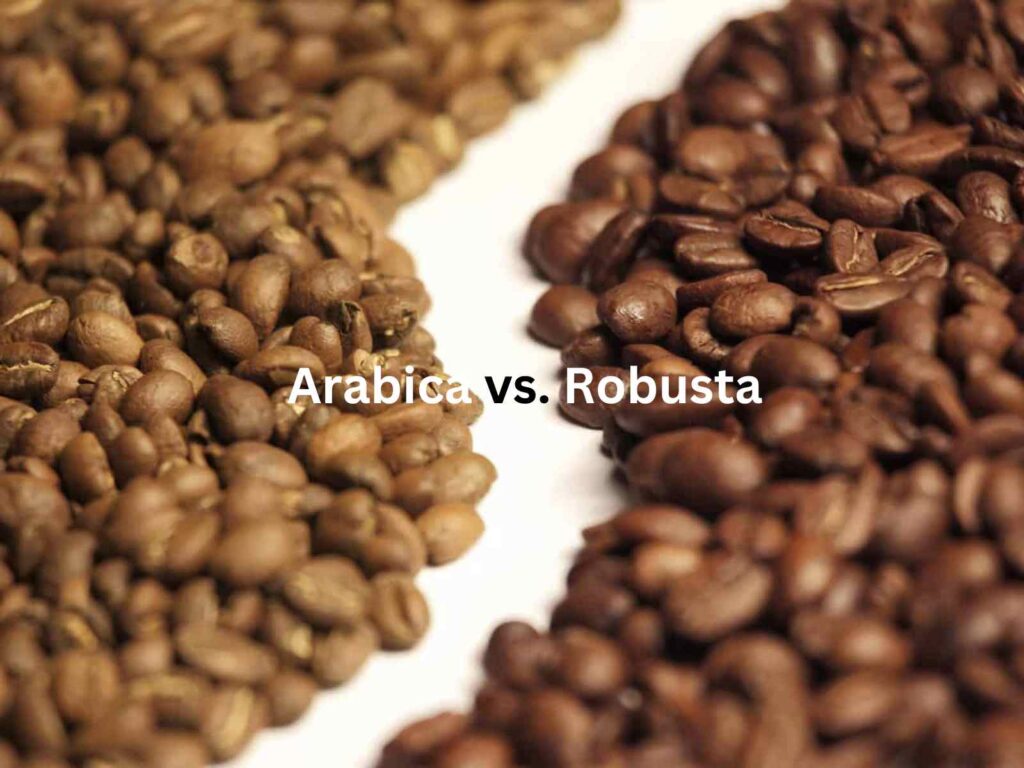Coffee is a beloved beverage enjoyed by millions worldwide, but developing healthy coffee habits is crucial to reaping its potential benefits. This comprehensive guide will explore the science-backed advantages of moderate coffee consumption, provide insights on selecting the best coffee beans, and share expert tips on brewing methods, mindful drinking, and integrating coffee into a balanced lifestyle. By the end, readers will have the knowledge to savor their favorite brew guilt-free and maximize the positive impact of coffee on their wellbeing.
Key Takeaways
- Moderate coffee consumption can offer a range of health benefits, including improved focus and cognitive function, as well as reduced risk of certain diseases.
- Understanding the differences between Arabica and Robusta beans, and choosing organic and fair trade options, can enhance the flavor and sustainability of your coffee.
- Brewing methods, such as the French press and pour-over, can significantly impact the final taste and potential health benefits of your coffee.
- Practicing moderation in caffeine intake and avoiding unhealthy additives are essential for developing healthy coffee habits.
- Mindful coffee drinking, focusing on the aroma and flavor, can elevate the overall experience and contribute to improved focus and relaxation.
The Benefits of Moderate Coffee Consumption

Numerous studies have shown that moderate coffee consumption can offer a range of health benefits. The caffeine in coffee can enhance focus, concentration, and cognitive function, helping to improve productivity and mental performance. Additionally, research indicates that regular coffee intake may reduce the risk of various diseases, including type 2 diabetes, Parkinson’s disease, liver disease, and certain types of cancer. These potential benefits underscore the importance of developing healthy coffee habits that align with one’s individual needs and overall wellness goals.
Improved Focus and Cognitive Function
The caffeine found in coffee has been shown to have a positive impact on cognitive function. Moderate coffee consumption can boost focus, concentration, and mental alertness, which can lead to improved productivity and enhanced problem-solving abilities. This makes coffee a valuable tool for individuals seeking to optimize their cognitive performance throughout the day.
Reduced Risk of Certain Diseases

Interestingly, research has also suggested that regular, moderate coffee intake may lower the risk of developing certain chronic diseases. Studies have linked coffee consumption to a reduced risk of type 2 diabetes, Parkinson’s disease, liver disease, and even some types of cancer. These findings highlight the potential health benefits of incorporating coffee into a balanced lifestyle, provided it is consumed in moderation.
By understanding the science-backed advantages of moderate coffee consumption, individuals can make informed choices about incorporating this beloved beverage into their daily routines in a way that supports their overall wellbeing.
Choosing the Right Coffee Beans
The quality and origin of coffee beans can significantly impact the flavor, aroma, and potential health benefits of your brew. Understanding the differences between Arabica and Robusta coffee beans, as well as the importance of organic and fair trade sources, can help coffee enthusiasts make informed choices and enjoy a more flavorful and responsible cup of coffee.
Arabica vs. Robusta: Understanding the Difference

Arabica beans are generally considered superior in quality, with a more complex and nuanced flavor profile compared to the bolder, more caffeine-rich Robusta beans. Arabica coffee plants are more delicate and require specific growing conditions, such as higher elevations and cooler temperatures, resulting in a sweeter, more aromatic cup of coffee. In contrast, Robusta beans are known for their higher caffeine content and more intense, sometimes harsher, flavor characteristics.
Organic and Fair Trade Coffee: A Sustainable Choice
Opting for organic and fair trade coffee sources can have a significant impact on the sustainability and ethical practices associated with coffee production. Organic farming methods avoid the use of synthetic pesticides and fertilizers, promoting a more environmentally friendly approach. Fair trade certification ensures that coffee producers receive a fair and equitable price for their crops, supporting the livelihoods of coffee growers and their communities. By choosing organic and fair trade coffee, consumers can enjoy a more sustainable and socially responsible cup of coffee.
| Characteristic | Arabica Coffee | Robusta Coffee |
|---|---|---|
| Flavor Profile | Complex, nuanced, and sweeter | Bolder, more intense, and sometimes harsher |
| Caffeine Content | Lower (about 0.8-1.2% caffeine) | Higher (about 1.7-4% caffeine) |
| Growing Conditions | Require specific, high-altitude environments | More adaptable to a wider range of climates |
| Origin | Primarily grown in Central and South America, East Africa, and parts of Asia | Mainly cultivated in Indonesia, Africa, and Brazil |
Brewing Methods for Optimal Flavor and Health
The way coffee is brewed can significantly impact the final flavor and potential health benefits of the beverage. Each brewing method has its own unique advantages and can cater to individual preferences. Understanding the characteristics of different coffee brewing methods can help coffee drinkers experiment and find the optimal approach to suit their taste buds and health goals.
French Press: A Rich and Bold Experience
The French press method is renowned for producing a rich, bold, and full-bodied cup of coffee. This brewing technique allows the essential oils and natural flavors of the coffee beans to be extracted, resulting in a robust and flavorful brew. The French press is an excellent choice for those who appreciate a bold and satisfying coffee experience that can be enjoyed on its own or paired with a variety of foods.
Pour Over: Bringing Out the Best Flavors
The pour-over coffee brewing method is a favorite among coffee enthusiasts who seek a more nuanced and delicate flavor profile. By slowly pouring hot water over freshly ground coffee beans, the pour-over technique allows for a controlled and precise extraction, bringing out the unique characteristics and subtle notes of the coffee. This method is particularly well-suited for single-origin coffees or those with complex flavor profiles, enabling coffee drinkers to truly savor the intricacies of their favorite brew.
Healthy Coffee Habits: Enjoy Your Brew the Right Way
Developing healthy coffee habits goes beyond simply savoring the flavorful brew. It’s essential to practice caffeine moderation, as excessive consumption can lead to adverse effects. Additionally, avoiding unhealthy additives, such as sugary syrups or creamers, can help maintain the potential health benefits of your daily cup of coffee.
Moderation is Key: Limiting Caffeine Intake
While the energizing properties of caffeine can be beneficial, it’s crucial to monitor your intake and ensure it aligns with your individual needs and tolerance levels. Consuming healthy coffee habits in moderation can provide a productive boost, but exceeding the recommended limits can result in jitteriness, insomnia, and other undesirable side effects.
Avoiding Unhealthy Additives and Sweeteners
To fully enjoy the potential health benefits of your coffee, it’s important to be mindful of the ingredients you add. Resist the temptation of sugary syrups, flavored creamers, and other coffee additives that can quickly turn your beverage into an indulgent treat, potentially undermining the advantages of a more natural, healthier brew.
By being conscious of your caffeine moderation and ingredient choices, you can savor your favorite coffee in a responsible and guilt-free manner, maximizing the positive impact on your overall well-being.
The Art of Mindful Coffee Drinking

Elevating the coffee experience to an art form begins with the practice of mindful drinking. By taking the time to fully engage with the aromatic and flavorful nuances of each cup, coffee enthusiasts can derive greater pleasure and potential health benefits from their daily brew.
Savoring the Aroma and Flavor
The coffee aroma and flavor are often overlooked in the rush of everyday life, but these sensory experiences hold the key to unlocking the true essence of mindful coffee drinking. Slowing down, taking deep breaths, and allowing the complex notes to unfold on the palate can heighten one’s appreciation for the craft of coffee preparation and the natural wonders of the bean.
Creating a Relaxing Coffee Ritual
Incorporating a coffee ritual into one’s daily routine can foster a sense of tranquility and mindfulness. Whether it’s brewing a pour-over in the morning, savoring a French press during a mid-afternoon break, or enjoying a cup of decaf before bedtime, the act of purposefully preparing and sipping coffee can become a meditative practice that promotes focus, relaxation, and overall well-being.
| Benefits of Mindful Coffee Drinking | Potential Health Impacts |
|---|---|
| Enhanced flavor appreciation | Improved focus and concentration |
| Increased sense of relaxation | Reduced stress and anxiety |
| Deepened connection to the coffee experience | Promotion of overall well-being |
By embracing the art of mindful coffee drinking, individuals can cultivate a deeper appreciation for the craft of coffee preparation and potentially unlock a host of mental and physical benefits that extend far beyond the simple pleasure of the brew.
Coffee and Hydration: Striking the Right Balance
While coffee is a beloved and widely consumed beverage, it’s important to consider its impact on hydration. Caffeine, the primary active compound in coffee, can have a diuretic effect, leading to increased water loss. To maintain a healthy balance, it’s recommended to consume coffee in moderation and pair it with adequate water intake throughout the day.
The relationship between coffee and hydration is a delicate one. Coffee and hydration are both essential elements of a balanced lifestyle, and finding the right equilibrium is key to maximizing the benefits of your favorite brew. Coffee and water intake should be carefully monitored to ensure that your overall fluid intake remains adequate, preventing dehydration and supporting optimal bodily functions.
By striking the right balance between coffee and hydration, individuals can enjoy the benefits of their favorite brew without compromising their overall fluid intake and bodily functions. This approach allows coffee enthusiasts to savor their daily cup while maintaining a healthy, well-hydrated state, contributing to their overall well-being and performance throughout the day.
Decaf Coffee: A Healthier Alternative?

For those seeking to reduce their caffeine intake or avoid the stimulant effects of coffee, decaf coffee can be a viable option. The decaffeination process, which involves the removal of caffeine from the coffee beans, can preserve many of the potential health benefits of coffee while offering a lower-caffeine alternative.
Understanding the Decaffeination Process
The decaffeination process used by specialty coffee roasters can vary, but it typically involves soaking the green coffee beans in a solvent, such as water, carbon dioxide, or a chemical agent, to extract the caffeine. This process aims to remove at least 97% of the caffeine while retaining the coffee’s natural flavors, aromas, and potential antioxidant content.
Pros and Cons of Decaf Coffee
When it comes to decaf coffee, there are both pros and cons to consider. On the positive side, decaf coffee can still provide many of the same health benefits as regular coffee, such as decreased risk of type 2 diabetes, Parkinson’s disease, and certain types of cancer, without the elevated caffeine levels. However, the decaffeination process can also impact the coffee’s flavor profile, potentially resulting in a less robust or more muted taste. Additionally, some studies have suggested that the decaffeination process may reduce the coffee’s antioxidant content, though the extent of this impact is still being researched.
Ultimately, the decision to choose decaf coffee over regular coffee comes down to individual preferences and health goals. By understanding the decaffeination process and weighing the pros and cons of decaf, coffee enthusiasts can make an informed decision that aligns with their personal needs and lifestyle.
Coffee and Exercise: A Powerful Combination
The relationship between coffee and exercise is a dynamic one, offering a wealth of benefits for fitness enthusiasts. Consuming coffee before a workout can provide a much-needed energy boost and enhance your focus, potentially leading to improved exercise performance and endurance.
Pre-Workout Coffee: Boost Your Energy and Focus
The caffeine in coffee acts as a natural stimulant, helping to increase alertness, concentration, and motivation. By sipping on a cup of coffee before your workout, you can experience a surge of energy that can power you through even the most demanding exercise routines. This pre-workout caffeine kick can also help you push past mental barriers, allowing you to maximize the intensity and duration of your training sessions.
Post-Workout Coffee: Enhancing Recovery
But the benefits of coffee don’t stop at the gym door. Research suggests that consuming coffee after a workout can also aid in the recovery process. The antioxidants and other compounds found in coffee may help replenish energy stores, reduce muscle soreness, and support the body’s natural healing mechanisms. By incorporating coffee into your post-workout routine, you can enhance your body’s ability to recover and prepare for your next fitness challenge.
By strategically integrating coffee into their exercise regimens, fitness enthusiasts can leverage the synergistic benefits of this dynamic pairing to support their overall health and wellness goals. Whether it’s a pre-workout boost or a post-workout recovery aid, coffee can be a powerful ally in your pursuit of a healthier, more active lifestyle.
FAQ
What are the potential benefits of moderate coffee consumption?
Numerous studies have shown that moderate coffee consumption can enhance focus, concentration, and cognitive function, as well as reduce the risk of certain diseases, including type 2 diabetes, Parkinson’s disease, liver disease, and certain types of cancer.
What is the difference between Arabica and Robusta coffee beans?
Arabica beans are generally considered superior in quality, with a more complex and nuanced flavor profile compared to the bolder, more caffeine-rich Robusta beans.
How do different brewing methods impact the flavor and health benefits of coffee?
The French press method produces a rich and bold cup of coffee, while the pour-over technique allows for a more nuanced and delicate flavor profile. Understanding the characteristics of various brewing methods can help coffee drinkers find the optimal approach to suit their taste buds and health goals.
How can I develop healthy coffee habits?
Practicing moderation in terms of caffeine intake, avoiding unhealthy additives, and being mindful of portion sizes and ingredient choices can help coffee drinkers savor their favorite brew in a responsible and guilt-free manner.
How can I incorporate coffee into my exercise routine?
Consuming coffee before a workout can provide a boost of energy and focus, potentially enhancing exercise performance and endurance. Coffee may also aid in post-workout recovery, helping to replenish energy stores and reduce muscle soreness.
What are the pros and cons of drinking decaf coffee?
The decaffeination process can preserve many of the potential health benefits of coffee while offering a lower-caffeine alternative. However, it can also impact the flavor profile and potential antioxidant content of the coffee.
How can I ensure proper hydration when drinking coffee?
While coffee is a popular beverage, it’s important to consider its impact on hydration. To maintain a healthy balance, it’s recommended to consume coffee in moderation and pair it with adequate water intake throughout the day.
How can I incorporate mindfulness into my coffee drinking experience?
Taking the time to savor the aroma and flavor of the coffee, as well as creating a relaxing ritual around the brewing and consumption process, can enhance the overall experience and potentially contribute to improved focus, relaxation, and overall well-being.

